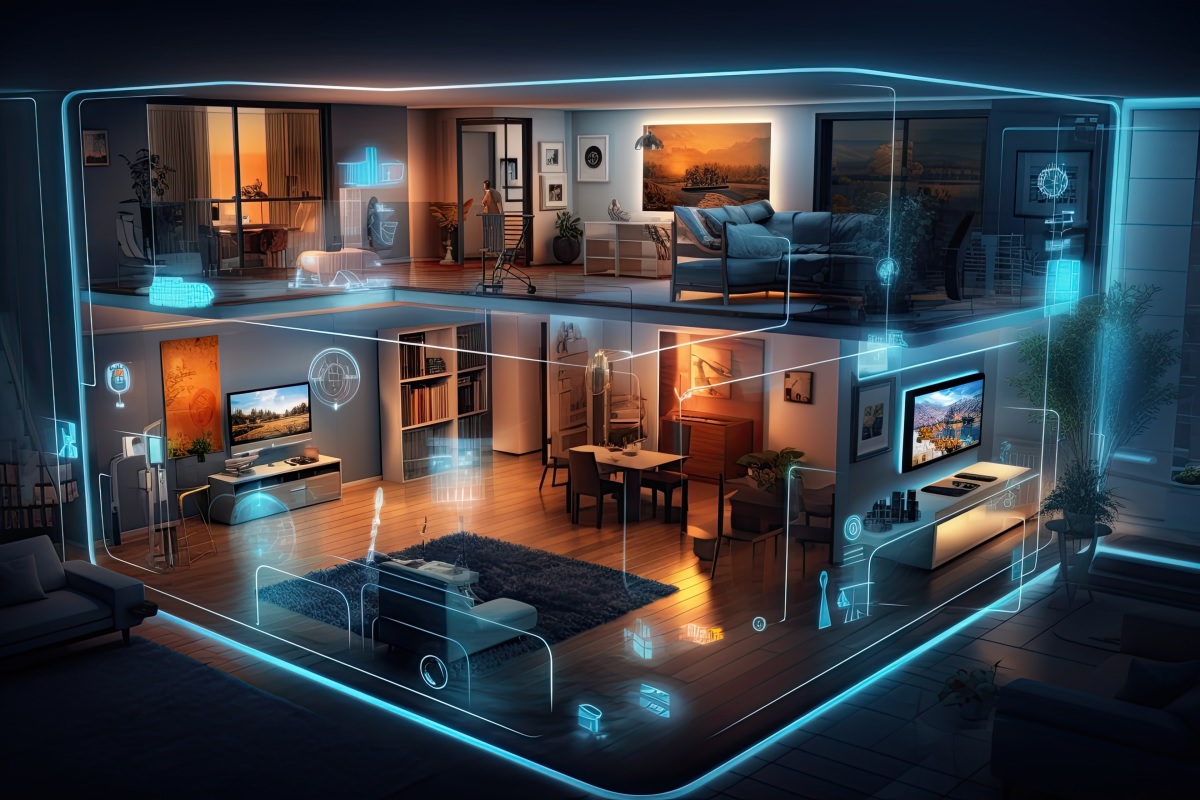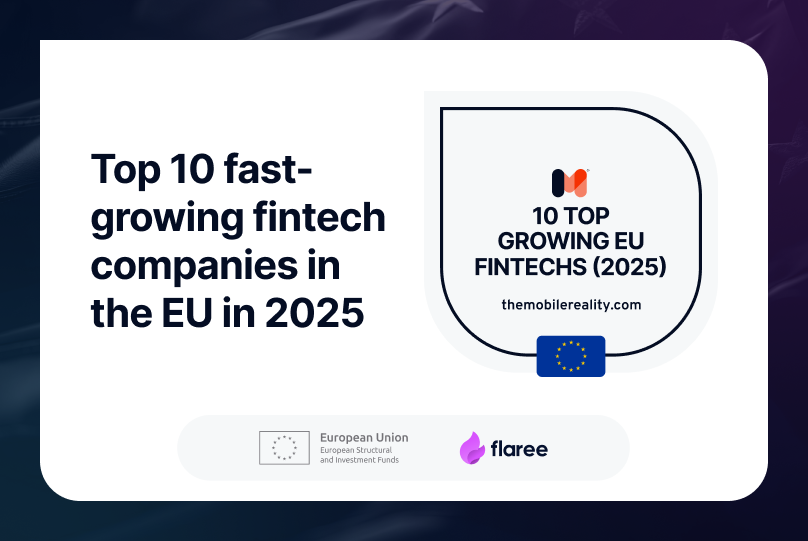Introduction
Next generation technologies are rapidly disrupting traditional property management models and shaping the future of real estate technology trends. From artificial intelligence to internet-connected devices, innovative solutions optimize processes, enhance tenant experience, and future-proofing portfolios. As new property management startups proliferate and venture capital flows into the space, the adoption of next-gen solutions is accelerating. Industry leaders are integrating new technology solutions into their portfolios, while new developments are designed specifically for smart capabilities. Those who fail to embrace technological transformation risk inefficiency, dissatisfied tenants, and eventually irrelevance.
Next generation property management solution allows managers to reduce costs, boost profits, and exceed tenant expectations. However, implementing next-gen solutions requires careful change management and cybersecurity considerations. With an informed strategy, the real estate technology industry and real estate technology solutions can fully leverage innovations real estate to drive productivity and tackle evolving tenant needs.
The Next Generation of Property Management
A host of innovations displaces antiquated, manual technology real estate processes. Next-generation platforms and capabilities include
Automated Platforms
Consolidated next generation property management platforms are emerging, integrating previously siloed functions. Features like accounting, maintenance dispatching, communication and payments can now be handled on a single intuitive portal. Workflow automation helps resolve tenant requests rapidly.
According to Johan Hajji @ Cofounder at UpperKey and his article in Forbes the automation in property management can accelerate through:
Maintenance Request Management: Automating maintenance requests to generate work orders and assign them to providers can save time and ensure timely resolution. Implementing systems for tenants to submit requests via mobile apps is one such method.
Rent Collection Automation: Streamlining the process of collecting rent through automated reminders, notifications, and offering online payment options can simplify the task for both managers and tenants.
Lease Renewal Notifications: Automated systems can send timely lease renewal notices to reduce lease expirations and aid in smooth renewals.
Tenant Onboarding: Digital onboarding processes can streamline the creation and delivery of lease agreements, move-in checklists, and welcome packages, as well as gather tenant information and documentation.
Tenant Communication: Automating communications such as reminders, announcements, and maintenance schedules can enhance tenant interactions and overall experience.
Expense Tracking and Reporting: Using automation to track expenses and generate financial reports can assist in better financial management and informed decision-making.
Document Management: Implementing a cloud-based document management system can automate the categorization and storage of important documents, improving organization and security.
Vendor Management: Automating vendor selection, contract management, and payment processing can increase efficiency in managing supply chains.
Inspections and Compliance: Automation can help schedule inspections and ensure compliance with regulatory requirements, avoiding potential legal issues.
Reporting and Analytics: Automated generation of performance reports and analytics can provide valuable insights for data-driven decision-making in operations and customer experience.
Remote & Virtual Management
Property management has evolved to allow managers to oversee their portfolios and communicate with tenants from virtually anywhere, thanks to remote connectivity and advanced virtual technologies. Modern practices include virtual leasing offices and self-guided rental tours, making property visits more convenient and accessible. Further enriching this approach, property managers are increasingly adopting digital payment systems, like LandlordStudio, to facilitate secure and timely rent collection. These systems often allow for the setting up of recurring payments, enhancing the efficiency of financial transactions. Communication with tenants has also become more streamlined. Automated rent reminders and routine communication templates can be set up, ensuring consistent and clear interactions. Property managers maintain various communication channels, including email, text, and phone, or even specific communication apps, ensuring they are always reachable and responsive to tenant needs. For maintenance and emergency situations, especially when managing properties across different time zones, appointing local agents or reliable maintenance personnel ensures timely and effective handling of such matters. Additionally, remote management benefits from robust tenant screening processes and virtual property viewings. Even from a distance, landlords can ensure they are selecting reliable tenants and providing comprehensive virtual tours of their properties. Incorporating modern security measures, such as home security systems with features like carbon monoxide detectors and smart door locks, provides added safety for both tenants and property managers. Finally, embracing digital solutions for document management, including online document signing and efficient bookkeeping software, has streamlined administrative tasks. This approach not only saves time but also simplifies tax preparation and financial management. Overall, the integration of technology in remote and virtual property management offers enhanced efficiency, improved tenant experiences, and greater ease in managing properties from afar.
Mobile Apps & 24/7 Access
The integration of mobile apps in property management has revolutionized tenant interaction and convenience. With apps like PropertyMe and Bidrento, tenants now enjoy 24/7 access to a range of services directly from their smartphones. These apps offer functionalities beyond the traditional scope of phone calls or office visits.
PropertyMe's tenant app, for instance, allows tenants to view their payment history, submit maintenance requests, and access important documents related to their lease all from their mobile device. This enhances the transparency and efficiency of managing rental affairs.
Similarly, Bidrento's tenant app provides a streamlined platform for tenants to pay rent, report maintenance issues, and communicate with property managers. It simplifies many of the usual rental processes, making it convenient for tenants to handle various tasks anytime and anywhere.
These mobile apps represent a significant shift in how tenants interact with their living spaces and property managers. By handling maintenance issues, rent payments, and more through these apps, tenants benefit from instant access and response, improving their overall rental experience.
The integration of such technology in property management not only elevates tenant satisfaction but also significantly reduces the administrative burden on property managers, leading to more efficient property management practices.
AI Chatbots
Artificial intelligence chatbots are revolutionizing tenant communication in property management. These smart chatbots provide 24/7 self-service, offering instant answers to tenants' routine queries without requiring human intervention. According to DoorLoop's article, these AI chatbots enhance response times, handle multiple inquiries simultaneously, and are available around the clock, significantly improving tenant satisfaction. They also provide guidance on selecting the right AI chatbot platform, ensuring legal compliance, and integrating the chatbot into property management websites. Additionally, the importance of supplementing chatbot communication with human support is emphasized, optimizing both efficiency and tenant interaction. Read more in DoorLoop's article here.
Smart Home Technology
Connected thermostats, locks, lights, and sensors transform apartments into responsive, tech-enabled living spaces and family of home builders. Smart Home Technology in property management includes devices that enhance efficiency, security, and convenience. Smart thermostats adjust temperatures for energy savings, while smart lighting systems allow remote control and personalized settings. Keyless entry and guest management are facilitated by smart locks and access control systems. Early leak detection is possible with smart water sensors, reducing damage risks. Smart security systems, including cameras and alarms, provide real-time monitoring. Automated household tasks are handled by smart appliances, and smart home hubs offer centralized control of all devices.
Driving Innovation in Real Estate
Several key factors fuel innovation in next generation property management technology and drive rapid real estate industry change:
Property Management Startups
Hundreds of innovative startups are entering the property management sector, driven by the industry's lag in adopting technology. These companies are developing solutions targeting various aspects of real estate processes. Israeli startups like Guesty, MyTower, Pickspace, Visitt.io, Venn, Home365, and Lendlord are making significant strides in proptech and property management. They offer diverse solutions ranging from short-term rental and IoT tools for residential buildings, to commercial real estate management, facility management tools, community engagement platforms, predictive maintenance, and online portfolio management for landlords and investors. Their growth indicates a dynamic shift in the property management industry towards more technologically advanced solutions.
AI & Emerging Tech Adoption
The real estate sector is experiencing a transformation driven by mature AI technologies, including chatbots, predictive analytics, and process automation, enhancing efficiency in property management. Emerging technologies such as the Internet of Things (IoT), blockchain, and augmented reality are also gaining momentum. These innovations are redefining property management practices, improving operational efficiency, enhancing tenant experiences, and offering new tools for property marketing and maintenance. The integration of these technologies represents a shift towards more advanced, efficient, and user-friendly real estate solutions.
Venture Capital Investment
Venture Capital Investments are significantly shaping the next generation property management solutions and the real estate sector in general. Top proptech VC firms like MetaProp, Camber Creek, JLL Spark, Fifth Wall, Reshape, Click Ventures, Sunriver Ventures, Altalurra Ventures, PropTech Farm, and Proptech1 Ventures are leading this change. These firms are investing in various emerging technologies and innovative solutions that are transforming the real estate industry.
For instance, MetaProp, with its focus on AI and GreenTech/ClimateTech, has made significant investments in startups like LocateAI, Aquicore, and Common, which are changing how real estate processes are handled. Similarly, Camber Creek's investments in companies like Arcadia and Measurabl showcase a commitment to sustainability and technology-driven solutions in real estate.
JLL Spark, focusing on ConTech, Fintech, and Smart Building Technologies, has invested heavily in startups like EliseAI and Foyr, indicating a strong inclination towards AI and smart infrastructure. Fifth Wall, another major player, emphasizes proptech solutions addressing global challenges like climate change, with significant investments in companies like Pacaso and Clarity AI.
Reshape's diverse investment portfolio in sectors overlapping with real estate, and Click Ventures' focus on multi-sector investments including CRE technologies, highlight the broadening scope of proptech innovations.
Sunriver Ventures, despite being a relatively new player, is already making its mark in the real estate sector with investments in companies like Theo Build and Groundbreaker. Altalurra Ventures, with a focus on impact-driven tech investing, is supporting businesses that adhere to ESG regulations.
PropTech Farm, bridging the Nordics with Southeast Asia, is prioritizing sustainability-oriented businesses in the real estate domain. Lastly, Proptech1 Ventures, with a unique approach to co-investing, is supporting a wide range of startups in Proptech, Contech, and Urbantech.
These VC firms are not only providing financial backing but also bringing in their expertise and network, thereby accelerating the adoption of innovative technologies in real estate. This influx of venture capital is enabling the development of smarter, more efficient, and sustainable real estate solutions, fundamentally changing how properties are managed, bought, sold, and interacted with.
Matt Sadowski
CEO of Mobile Reality
Does your real estate business need more digital input?
Unlock the full potential of your real estate operations with innovative, custom-built software designed to meet your unique needs.
Free consultation for tailored proptech solutions
Discover how custom software can optimize your real estate operations
Expertise in property management platforms and real estate marketplaces
Enhance client experience with cutting-edge technology
Boost your business with proptech AI agents
Next Generation Homes and Buildings
The residential and commercial real estate infrastructure is evolving to leverage innovation real estate fully:
IoT-Enabled New Developments

IoT-enabled developments are profoundly transforming homes and buildings, ushering in a new era of 'next generation' living spaces. This transformation is characterized by the integration of devices like smart mirrors, robot vacuum cleaners, and wireless kitchen appliances, enhancing domestic life with convenience and efficiency.
The adoption of IoT in homes leads to increased automation, where devices communicate with each other to optimize tasks and energy usage. Intelligent climate control systems can adjust temperature based on occupancy and time of day, while smart lighting systems respond to natural light levels and user preferences. Advanced security systems with IoT enable real-time monitoring and alerts, providing enhanced safety.
However, we have to pay attention to important considerations, such as the trade-off between convenience and privacy. As homes become smarter and more interconnected, the amount of data generated and the potential for privacy breaches increase. This raises questions about how the evolution from traditional to smart homes reflects our values and identity.
Challenges of device interoperability in smart homes, where seamless integration of multiple devices from different manufacturers remains a key hurdle. Furthermore, it emphasizes the need for stringent privacy and security measures to protect users from potential breaches and misuse of personal data.
In summary, while IoT-enabled smart homes and buildings offer unprecedented levels of convenience, efficiency, and energy savings, they also bring challenges in interoperability, privacy, and security that need to be carefully navigated.
Retrofitting Existing Properties
Retrofitting existing properties with Internet-of-Things (IoT) infrastructure is a growing trend among landlords seeking to modernize older buildings. By incorporating technologies such as smart thermostats and remote-controlled amenities, these properties are transformed to offer functionalities similar to newer, next generation buildings. This retrofitting not only enhances the convenience and efficiency for occupants but also significantly improves energy management. Smart devices can adapt to user behavior and environmental conditions, leading to reduced energy consumption and cost savings. Additionally, retrofitting with IoT can increase a property's market value and appeal, making it competitive in the real estate market.
However, this process also involves challenges such as integrating next generation property management solutions with existing systems and ensuring data privacy and security. Despite these challenges, retrofitting is an effective way to bring older properties into the modern era, aligning them with the evolving expectations of tenants and buyers in the smart home and building market.
Rise of Smart Apartments
Smart apartments, equipped with Internet of Things (IoT) devices, are transforming residential living by offering residents the ability to remotely control various aspects of their home, such as thermostat settings, energy management, and security systems. This enhanced level of convenience and efficiency is rapidly becoming the new standard for modern living.
The global smart apartments market reflects this transformation, with expectations to expand from $2.67 billion in 2022 to $3.1 billion in 2023, showcasing a robust CAGR of 16.4%, according to Smart Apartments Global Market Report 2023 done by The Business Research Company. Despite challenges such as the economic impacts of the Russia-Ukraine conflict and the ongoing repercussions of the COVID-19 pandemic, which have both disrupted global economic recovery and caused widespread inflation and supply chain issues, the smart apartments sector shows remarkable resilience and is projected to continue its growth trajectory, reaching an estimated $5.3 billion by 2027, at a CAGR of 14.3%.
The surge in popularity of smart apartments can be credited to the advancements in technology that have made the integration of smart devices increasingly affordable, along with a rising consumer awareness and a greater acceptance of IoT devices. This trend is particularly noticeable in developed regions such as the United States and European cities including London, Paris, and Berlin, where developers are keen to cater to a tech-savvy demographic. Moreover, the trend is gaining momentum in emerging economies, with nations like China and India seeing a growing middle class who are actively seeking out sophisticated and contemporary living solutions.
Smart apartments are poised to have a profound impact on the future of urban living, offering viable solutions to urban challenges like overcrowding, pollution, and excessive energy consumption. They aim to significantly optimize energy usage, minimize carbon footprints, and contribute to the development of sustainable and livable cities. Furthermore, these advanced living spaces are redefining residential comfort and convenience, ultimately enhancing the overall quality of life for their inhabitants.
Nevertheless, this increase in smart apartments also brings to the forefront critical concerns regarding privacy and cybersecurity. The enhanced connectivity and data exchange inherent in these living spaces greatly amplify the risks of data breaches and cyber-attacks. Addressing these concerns is paramount, necessitating developers and technology providers to place a heightened emphasis on cybersecurity measures and the protection of residents' personal information.
In conclusion, the burgeoning global market for smart apartments signifies a significant evolution in the real estate sector, propelled by technological advancements and a shift in consumer preferences. This ongoing trend is anticipated to further evolve living and interaction within urban environments. However, as the sector progresses, it is imperative to confront and surmount the challenges presented to ensure that these smart living spaces remain secure, sustainable, and advantageous for everyone involved.
Flexible, Tech-Enabled Spaces
Flexible, tech-enabled spaces are increasingly defining next-generation homes and buildings, particularly emphasizing shared spaces that are rich in technology. These modern environments not only feature amenities like video conferencing rooms and high-speed internet but also extend to integrated remote working capabilities. This evolution is part of a broader shift towards spaces that are adaptable and connected, aligning with the dynamic demands of contemporary lifestyles.
Moreover, these spaces are being equipped with cutting-edge tools such as office automation control systems, allowing for the environmental aspects like lighting, heating, and air conditioning to be managed remotely via mobile devices. Personalized lighting systems are being introduced, which can be adjusted through smartphone apps, catering to individual preferences and needs.
Visitor management systems in these spaces are revolutionizing the way guests are received and managed, providing a more streamlined and secure process. Additionally, the inclusion of connected chairs in shared office spaces, which feature built-in electrical outlets and USB ports, further exemplifies the blend of comfort and functionality.
The incorporation of treadmill desks showcases a commitment to health and wellness, alongside productivity. These spaces are also beginning to embrace the potential of 3D printing technology, opening up new avenues for creativity and innovation. Finally, the integration of software tools like Zapier is crucial in these tech-enabled spaces, ensuring that various applications and workflows are seamlessly connected and automated.
Altogether, these developments mark a significant transition towards multifunctional, tech-integrated spaces. They not only support a wide range of activities, from work to leisure but also signify the seamless fusion of digital and physical realms, redefining the concept of modern living and working environments.
Benefits of Embracing Property Management Technology
Integrating new management solutions provides quantifiable benefits for property managers. Let's evaluate the most common one with the proper statistics which ensure us that these assumptions.
Improved Efficiency
Embracing property management technology significantly enhances operational efficiency. By automating repetitive tasks, such as file management and data entry, the time typically lost in these activities is eliminated. For instance, considering that, according to Workato, office workers spend over 50% of their time manually searching for files, automating file management can reclaim a substantial amount of productive time. Centralized platforms streamline workflows, making it easier to manage tenant requests, maintenance schedules, and other property management aspects. This leads to dramatically reduced response times for tenant requests, enhancing tenant satisfaction and operational efficiency. Additionally, task switching, which costs 40% of productivity, can be significantly reduced through automation, allowing property managers to focus more on strategic tasks rather than administrative duties. The integration of such technology not only simplifies day-to-day operations but also aligns with the global trend towards increased workplace productivity, as automation is expected to boost global productivity growth annually.
Reduced Costs

Embracing property management technology not only streamlines maintenance dispatching and utilizes chatbots for handling simple queries but also extends to other cost-saving measures, significantly cutting operational expenses. The integration of smart lockers, such as Parcel Pending’s system, eliminates the time staff spend on package management, while also enhancing tenant security and reducing clutter. This has been shown to increase tenant renewal rates by 40%, as indicated in a survey by Cortland Partners.
Further cost reductions can be achieved through water-saving initiatives, such as calibrating toilets, installing tamper-proof shower regulators, and aerators, which significantly cut down on water expenses. Adopting energy-efficient practices, like switching to LED bulbs and installing energy-saving appliances, not only lowers electricity costs but also appeals to the growing number of environmentally conscious renters. According to AMLI Residential’s 2019 report, the majority of residents are willing to pay more for sustainable living options
A solid preventative maintenance program is another effective strategy for reducing costs. This approach extends the life of major mechanical equipment, thereby decreasing the frequency and cost of repairs. Investing in in-house maintenance equipment, as opposed to relying on external services, further contributes to cost savings. Regular maintenance also improves tenant comfort and reduces the need for emergency repairs.
Lastly, appealing property taxes through knowledgeable experts can lead to significant savings, as property taxes often represent a substantial portion of a property manager’s expenses. These experts can identify loopholes, factors that diminish property value, and cap rates to ensure you're not overpaying on taxes.
By implementing these strategies, property managers can significantly reduce operating costs while simultaneously enhancing tenant satisfaction, thereby boosting the overall profitability and marketability of their properties.
Future-Proofing Assets
Integrating next-gen innovations in property management is essential for keeping real estate portfolios competitive and preventing obsolescence. By embracing advanced technologies, property owners can ensure their assets remain relevant and appealing in an evolving market. This approach aligns with the current trends in the real estate sector, where infrastructure investments are increasingly seen as steadfast and essential, particularly highlighted by the energy security and supply needs in the wake of recent global events. Incorporating technology in residential real estate, as indicated by the growing investor demand, prepares properties for a future where rental residential spaces are expected to see expanded interest.
Moreover, the shift towards sustainable Infrastructure 2.0, which emphasizes tackling climate change and delivering attractive risk-adjusted returns, is a crucial aspect of future-proofing real estate assets. This sustainable approach not only attracts investors but also aligns with the global movement towards environmental responsibility.
Additionally, understanding the dynamics of rapidly changing logistics markets in regions like the U.S. and Europe, and adapting property management strategies accordingly, can provide a significant edge. The global perspective, as suggested by the benefits of expanding into global real estate markets, further underlines the importance of a broad, forward-thinking approach in property management.
In summary, by integrating cutting-edge property management technology and aligning with global real estate trends, property owners can effectively future-proof their assets, maintaining their relevance, competitiveness, and profitability in the long term.
Cybersecurity
Digitization introduces new risks of data breaches or system outages in the realm of property management. New platforms must incorporate rigorous security protocols and encryption to safeguard tenant information, ensuring operational efficiency and without disruption. The importance of cybersecurity in commercial real estate, especially with the rise of smart buildings, cannot be overstated. As these buildings become increasingly interconnected with various systems like Wi-Fi networks, HVAC, and power supply hardware, they become more susceptible to attacks from bad actors. These cyber intrusions not only pose operational and reputational challenges for landlords but also have far-reaching legal and financial consequences, including operational disruption to landlords and ransom demands to tenants.
To combat these threats, comprehensive strategies including compiling an inventory of all building systems, regular risk assessments, and system recovery procedures are vital. Such measures help property managers identify potential exposures and vulnerabilities, ensuring the efficient lifecycle operations of a building. Moreover, in the evolving landscape post-COVID-19, with increased remote working and cloud-based systems, safeguarding against attacks has added new layers of complexity, making investment in information security and risk management technology more critical than ever.
Legacy software integration is crucial, as new technological tools should ideally interface with existing maintenance dispatch programs, financial systems, and databases via APIs to prevent disruptions and maintain a seamless operational flow. As commercial real estate increasingly adopts more technology and becomes smarter, cybersecurity systems and policies become necessary to manage the associated risks effectively and ensure buildings continue to operate efficiently, protecting both landlord and tenant networks from cybersecurity threats. Building owners and managers must therefore prioritize cybersecurity to safeguard their assets and maintain trust with their tenants in this digital age.
Do you need custom software tailored to your real estate company?

The Future of Property Management
The future of property management will be defined by expanding integrations of smart infrastructure, the further automation of tasks through artificial intelligence, the rise of flexible leasing models, and the predictive power of data analytics. As smart cities grow and networked technologies proliferate, the ecosystems surrounding buildings will become increasingly interconnected. This will allow for seamless management and functionality between properties, utilities, transportation networks and community infrastructure. Within properties, advanced algorithms will gradually take over routing, repetitive tasks currently handled manually by staff, from accounting workflows to tenant communications and beyond. Although oversight and quality control will still rest with humans, most day-to-day operations will shift to optimized, predictive algorithms capable of learning and adapting.
Leasing terms will also become more flexible, with traditional year-long office and residential leases declining as on-demand access to spaces and amenities grows. The shift toward "space-as-a-service" will allow tenants to customize packages and pay only for the exact period and features used. Property managers will leverage data mining and predictive analytics based on connected sensor technology to forecast maintenance needs, identify efficiency opportunities, and provide value-added services.
As processes digitize, antiquated paper record-keeping and in-person methods not transitioned to digital will be eliminated. While human expertise will remain essential in tenant relations and relationship management, technology will grant property managers vastly enhanced asset visibility and control. Those who embrace interconnected, AI-powered tools and data-driven decision-making will flourish. However, late adopters risk inefficiencies, operating blind spots, and competitive disadvantages as innovative solutions set new industry standards.
The future is undeniably one of automation, seamless integration, flexibility, further tech developments, and tech-enabled customization. Next generation property management firms can shape tomorrow's built environment by recognizing and leveraging technology's immense potential. Those who will reap the rewards as market leaders.
Conclusion
New property management technology represents a disruptive shift in real estate innovations. Adoption is accelerating as leaders integrate innovations and new developments are designed for smart capabilities. Embracing new solutions is imperative for reducing costs, boosting competitiveness and exceeding tenant expectations long-term. With an eye toward the future, the industry can leverage technology to leave outdated legacy processes behind. Tomorrow's property managers will operate in a world of automation, virtualization, and interconnected smart buildings, armed with the tools to maximize productivity and tenant satisfaction.
Proptech and Real Estate Software Development Insights
Are you interested in the dynamic intersection of property technology and real estate software development? At Mobile Reality, our expertise in proptech is deep and broad, covering a range of innovative solutions and industry trends. We tackle unique challenges and employ cutting-edge strategies to advance real estate technology. Our selection of in-depth articles provides a comprehensive overview of the latest developments in proptech and real estate software:
- Proptech: a useful tool or a newfangled trend
- Software for real estate that you should consider in 2025
- Commercial real estate problems in 2024
- Top Proptech Conferences That You Cannot Miss in 2025
- Top Proptech Trends Shaping the Future
- How AI is Reshaping Real Estate Markets
- Build a Top-Notch Real Estate App with Ease
- Real Estate Software Integration: guide for proptech teams
- AI Property Management: Instant, Cited Answers for Tenants
Dive into these informative resources to enhance your understanding of the proptech sector. Please contact our sales team if you're considering collaborating in proptech or real estate software development. And for those interested in joining our pioneering team, visit our careers page and submit your CV. Join us in shaping the future of proptech and real estate software development!




